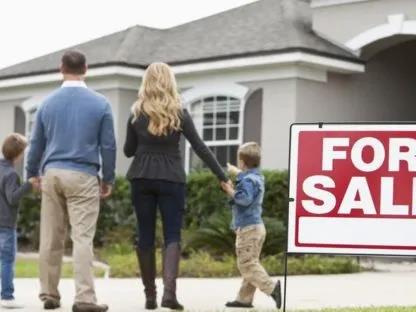Australian Property Market is No Longer Bearish! ANZ Revises Forecast: Strong Price Growth Expected Next Year!
ANZ Bank has scrapped its expectation of a 10% decline in house prices caused by the pandemic, stating that the surge in popularity driven by stimulus measures and record-low interest rates will dampen price declines and may even result in a “moderate” increase in prices this year.
ANZ predicts robust growth in house prices next year, with Perth, Brisbane, and Hobart potentially experiencing increases of 12%, 9.5%, and 9.4% respectively. Sydney’s house prices are expected to rise by 8.8%, approaching the national average, while Melbourne’s price growth will be slightly lower at 7.8%.
Owner-occupiers, especially first-home buyers, returning to the market may limit the decline in national house prices (starting from April) to within 2.1%, following a 1.7% increase this year. Prices next year could see a strong surge of nearly 9%.
This decision by ANZ, the world’s third-largest mortgage lender, to abandon its “overly pessimistic” forecast comes as the housing market sentiment improves, reflected in the rising housing finance and auction clearance rates, with the central bank’s interest rate cut this month further fueling this trend.
Felicity Emmett, Senior Economist at ANZ, expressed surprise at the strength of housing market sentiment despite the unresolved challenges the economy is expected to face next year. She co-authored the report with her colleague Adelaide Timbrell.
Emmett stated, “With an unemployment rate close to 7% and so much uncertainty for next year, it is surprising to see such optimism in the housing market. I’m amazed.”
The number of mortgage repayment deferrals is decreasing, but some issues persist for those who have deferred their payments.
The latest household survey released by the Australian Bureau of Statistics (ABS) on Monday, regarding the impact of COVID-19, shows that the proportion of the population having difficulty repaying mortgage loans increased from 2% in June to 5.1% last month.
Emmett noted that the impact of the pandemic on renters, who are usually low-income earners, has been greater than on homeowners.
She said, “The impact of the pandemic on the rental market is more significant, whereas people working in higher-paying jobs have largely kept their employment. Employment has increased in the top fifth of income-earning positions. This is something we hadn’t noticed before.”
Economic activity is improving, with three-quarters of properties sold at auctions in the week leading up to Sunday, driven by record-low borrowing costs and significantly reduced inventory. Buyers are turning their attention to properties in Sydney and Melbourne.
Previously, the Commonwealth Bank of Australia (CBA), the country’s largest mortgage lender, revised its expected decline from peak to trough last month from an initial forecast of 10-12% to just 6%.
However, the forecast by ANZ, headquartered in Melbourne, reflects the impact of the recent historic interest rate cuts by the central bank, bringing the cash rate down to 0.1%. Economists state that the cash rate “dominates” the property price cycle and has greatly influenced the shift in market sentiment.
They assert that the risks of revising the forecast are generally balanced. “The early arrival of vaccines and the resulting boost in market sentiment could push price increases beyond our current expectations.”
“Nevertheless, we believe that if the market overheats, regulatory bodies will swiftly intervene and implement macroprudential measures.”
Read More >>





